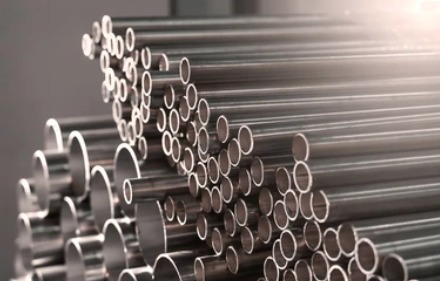Steel tubing stands as a testament to human engineering marvels, with its remarkable strength and versatile applications. In this comprehensive article, we delve deep into the world of steel tubing, exploring its immense strength and unrivaled properties that have made it a cornerstone in various industries.
From understanding the fundamental question, “How strong is steel tubing?” to delving into the intricate subtleties of its properties, we set forth on a voyage unveiling the unparalleled strength of this fundamental material.
What is Steel Tubing?
Steel tubing, in its essence, is a hollow cylinder made of steel. This tubular structure distinguishes itself through its composition, primarily comprising iron and carbon, and often alloyed with other elements to enhance its properties. This composition grants steel tubing its characteristic strength and versatility.
How Strong is Steel Tubing?
Steel tubing’s strength is a result of meticulous manufacturing processes and carefully selected alloys. Through advanced engineering techniques, steel tubing achieves an incredible balance between durability and flexibility. Its strength is unparalleled, making it a preferred choice in construction, automotive, and aerospace industries. The superior strength of steel tubing allows it to withstand immense pressure and heavy loads, ensuring longevity and reliability in diverse applications.
Strength Properties of Steel Tubing
A. Tensile strength and its importance
Tensile strength is a critical parameter that measures a material’s resistance to a stretching force. In the case of steel tubing, it represents the maximum stress it can endure while being stretched or pulled before necking, which is the point where the specimen’s cross-section starts to contract significantly.
B. Yield strength and its role in durability
Yield strength is the amount of stress at which a material begins to deform plastically, indicating the transition from elastic deformation to plastic deformation. For steel tubing, this is a pivotal factor as it signifies the stress level at which permanent deformation begins, influencing its overall durability.
C. Impact strength for resilience
Impact strength assesses a material’s ability to absorb energy during sudden impacts. In the case of steel tubing, high impact strength ensures resilience against unexpected external forces, making it a reliable choice for structures and components subjected to dynamic loads.
Different Types of Steel Used in Tubing
Several types of steel find their way into the manufacturing of steel tubing, each imbuing unique characteristics. Common ones include carbon steel, alloy steel, stainless steel, and mild steel. Carbon steel, known for its strength and durability, remains a staple in the realm of tubing.
Manufacturing Process of Steel Tubing
The production of steel tubing involves an intricate process that starts with melting down the chosen steel. After this, the molten steel is cast into a round shape, which then undergoes various processes like piercing, rolling, and sizing to achieve the desired dimensions and strength.
What are the Properties of Steel Tubing?
➡️ Durability: Steel tubing boasts exceptional durability, making it resistant to wear and tear. Its robust nature allows it to endure harsh environmental conditions, making it ideal for outdoor applications.
➡️ Corrosion Resistance: Many steel tubing varieties are treated with coatings to enhance their resistance to corrosion. This feature ensures that the tubing remains intact even in corrosive environments, extending its lifespan significantly.
➡️ Malleability: Steel tubing is highly malleable, allowing it to be shaped into various forms without compromising its strength. This property facilitates the creation of complex structures, meeting diverse industry needs.
➡️ Heat Resistance: Steel tubing exhibits excellent heat resistance, making it suitable for applications involving high temperatures. Its ability to withstand extreme heat without deformation or loss of strength makes it indispensable in industries like manufacturing and energy production.
Advantages of Steel Tubing Strength
A. Superior structural integrity
The unparalleled strength of steel tubing translates into superior structural integrity. This robustness makes it a preferred choice in the construction industry, providing stability and longevity to buildings and infrastructure.
B. Enhanced load-bearing capacity
Steel tubing’s strength empowers it with exceptional load-bearing capacity, enabling it to support heavy loads without succumbing to deformation or structural compromise. This makes it indispensable in applications where strength and reliability are paramount.
C. Resistance to external forces and environmental conditions
Steel tubing’s resistance to external forces like compression, tension, and shear, coupled with its resilience against harsh environmental conditions such as corrosion and extreme temperatures, elevates its utility across diverse industries. This resistance ensures longevity and sustained performance, even in challenging environments.
Conclusion
Steel tubing stands as a paragon of strength and durability in the world of materials engineering. Its exceptional properties and unmatched strength have made it indispensable in various industries, shaping the modern world as we know it. As you explore the myriad applications and advantages of steel tubing, it becomes evident that its significance is immeasurable.
Post time: Nov-02-2023


